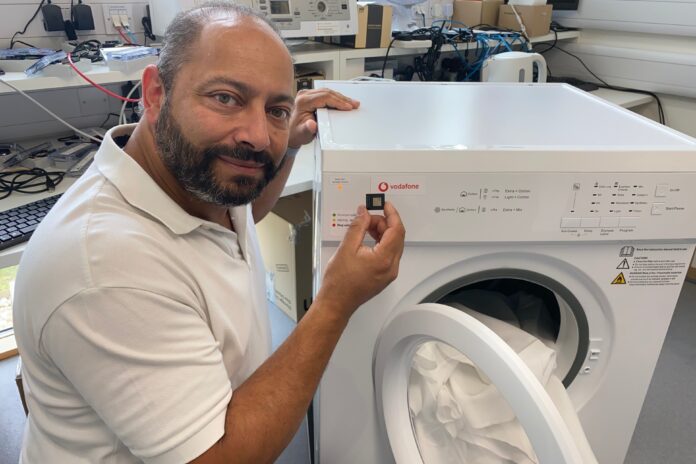Vodafone is developing a product recall system that allows manufacturers to notify consumers of recalled faulty or potentially dangerous electrical goods and shut them down remotely if needed.
Vodafone’s R&D team have built a prototype system which uses a small electronic device module – similar in size to a SIM card – installed within the appliance to provide a link over Vodafone’s network. This allows a manufacturer to alert consumers to potential issues with appliances or remotely disable them if necessary. In situations that pose no risk, companies can send a message via the Vodafone system to an LED on the product to notify consumers of the recall of their appliance.
With many large appliances recalled each year worldwide and serious faults frequently linked to fires, the Vodafone Safety Alert Message Indicator (SAMI) aims to overcome the issue of manufacturers not being able to contact the affected customers. This is particularly relevant if the appliance is not registered to a postal address or is re-sold. The manufacturer can also keep an audit trail of messages delivered successfully to their customers using this Vodafone service.
Next steps
Johan Wibergh, Chief Technology Officer, Vodafone Group, said: “Our technology is already allowing manufacturers to let consumers control home appliances when they are out and about. Now we have the potential to help manufacturers stay connected to their products in the field, enabling them to manage more effectively both servicing and safety recalls.
“The initial feedback from fire brigades for our system in development has been positive and we are now looking to work with manufacturers to make the IoT Safety Alert Message Indicator a reality. This is especially important at a time when the number of electronic appliances per household are predicted to increase and we spend more time at home.”
The IoT module works independently to the host product and uses only a small amount of direct current (DC) battery power to avoid the mains power supply.
The SAMI system has received innovation awards from both the Institution of Engineering and Technology (IET) and Electrical Safety First (ESF) – a UK charity dedicated to reducing and preventing damage, injuries and death caused by electricity.



